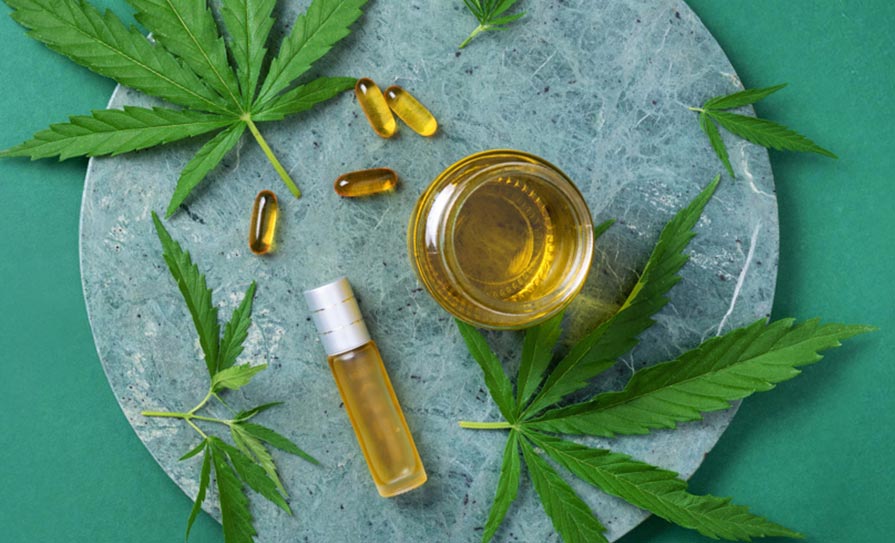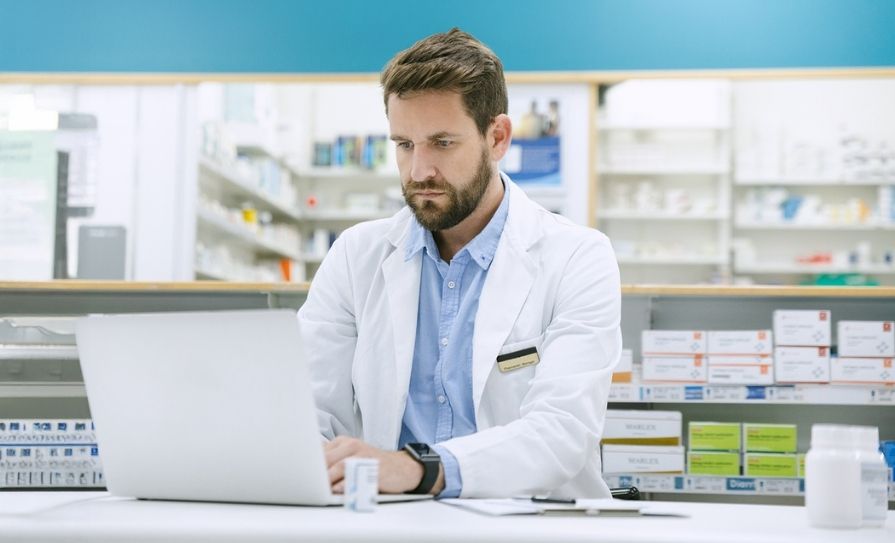How can a medicinal drug with clinically proven effects as an anti-convulsant and as a sedative be described as having no psychoactive ingredients or any psychotropic effects? To me this is scientific, writes Dr Des Corrigan
There are times when I read or hear something that convinces me that I am living in a parallel universe akin to Lewis Carroll’s Through the Looking Glass. I am reminded of the famous words of Humpty Dumpty: “When I use a word, it means just what I choose it to mean.” One particular bug bear is the continuous reference to Cannabidiol (CBD) as being non-psychoactive. It amazes me how many scientific and medical papers perpetuate this confusion when what they mean is that CBD is non-intoxicating and does not have the same euphoria-inducing effects as THC, the other main cannabinoid in cannabis plants.
Even the European Court of Justice has got into the act, ruling in 2020 that CBD extracted from cannabis plants was not a drug under the 1961 UN Convention as “it does not contain a psychoactive ingredient in the current state of scientific knowledge”. Bear in mind that CBD is a medicinal product approved by the EMA and the European Commission for adjunctive use in severe forms of childhood epilepsy (Dravets and Lennox-Gastaut Syndromes) and in tuberous sclerosis complex and marketed as Epidyolex®. Pharmacologically, CBD is known to act as an antagonist at the CB1 cannabinoid receptors that are mainly found in the CNS. It also behaves as a partial agonist of D2 dopamine receptors which may account for its anti-psychotic effects. So then, when is a drug not a drug? Equally, how can a medicinal drug with clinically proven effects as an anti-convulsant and as a sedative be described by their lordships of the ECJ as having no psychoactive ingredients or any psychotropic effects? To me this is scientific nonsense. But the law is the law even if it is also an ass.
Hard to digest
As a result of that ECJ ruling, the commission decided that CBD could be considered a Novel Food provided that conditions of the EU Food Safety Regulation are met. In 2022 the European Food Safety Authority (EFSA) issued a statement on the safety of CBD as a Novel Food. This refers to 19 applications under assessment by the EFSA and the knowledge gaps that have been identified. It notes the human data from studies on Epidyolex® emphasising that, while adverse effects can be tolerated in a medical context if the benefit outweighs the adverse effects, this is not acceptable in the case of a Novel Food which has to be assessed by the EFSA as safe. The statement highlights the need for data on interactions, toxicokinetics in different food and other matrices (especially fats and oils that might affect absorption, half-life and accumulation) and the effects on the liver, the GIT (diarrhoea risks), endocrine (thyroid), and nervous systems need to be clarified. Since animal studies show significant reproductive toxicity, the effects in females of childbearing age and also in males need to be assessed.
Studies in rats, mice, dogs, and rhesus monkeys consistently showed evidence of liver damage. This was also seen in the clinical trials on Epidyolex® in children who were also taking clobazam or valproate and in healthy individuals during a Phase 1 clinical trial. A systematic review and meta-analysis of CBD-associated hepatotoxicity –sponsored by cannabis companies in Canada – appeared in the Journal of Internal Medicine in 2023. This looked at 12 trials involving 1,229 patients. CBD use was associated with a 5.85 times normal increased risk of drug-induced liver disease. Doses greater than 1g per day and concomitant use of anti-epileptics were risk factors. Cases were rare or non-existent in adults using 300mg or less per day. The SPC for Epidyolex® refers to that risk of hepatocellular injury with a requirement that patients have liver enzyme and bilirubin levels checked before use and after one, three, and six months. Use must be stopped if levels go above three times the upper limit of normal (ULN). The use of CBD is contraindicated in patients with transaminase levels greater than 3 ULN and bilirubin greater than 2 ULN. Such a risk management approach is feasible with a medicinal product but could not be as easily implemented with a Novel Food.
Mind the gap
A 2023 paper in Phytotherapy Research analysed serious suspected adverse reactions to unlicensed CBD products in EudraVigilance, a database directed and controlled by the EMA. Almost 19 per cent of all adverse reactions were judged serious and were more likely to occur in men. They included mental disorders, liver disease, aggravation of pre-existing epilepsy, neurological and haematological disorders. They were more likely to occur when CBD is taken with other drugs such as clobazam and valproate. CBD also interacts with warfarin as reported the American Journal of Health-System Pharmacy in 2020 with one individual developing a supra-therapeutic INR of 6.86 requiring a 30 per cent reduction in warfarin dose.
Think about which of your patients might be vulnerable to interactions if they used CBD along with their existing medication
The EFSA panel concluded that the safety of CBD as a Novel Food could not currently be established because of the uncertainties and gaps. For some reason they felt unable to establish a No Observable Adverse Effect Level (NOAEL) that would have allowed them determine an Acceptable Daily Intake (ADI) of CBD. Strangely, food safety authorities in England and Scotland had no difficulty in devising a provisional ADI on the basis of safety data submitted to them. Perhaps a case of post-Brexit one-upmanship. The ADI was provisionally set at 0.15mg/kg body weight per day. This allowed the UK food safety authorities to issue precautionary advice that healthy adults should limit the oral intake of CBD from food to 10mg which is equivalent to 4-5 drops of a 5 per cent CBD oil in a 70kg adult. They also advise that CBD should not be taken by children, those on other medication, those pregnant or breast feeding or trying to conceive, or those who are immunocompromised. The food safety experts could not rule out that long-term daily use of pure CBD at levels greater than 10mg per day would contribute to adverse effects notably in the liver. So, what does all this mean for pharmacists who have CBD products available for sale in their pharmacies? First, you could audit any such products for compliance with that recommended maximum daily dose of 10mg per day for a 70kg adult. Second, think about which of your patients might be vulnerable to interactions if they used CBD along with their existing medication, in particularly any that might be affected by the inhibition of CYP3A4. Are any vulnerable patients, ie, pregnant or breastfeeding patients or the immunocompromised, purchasing CBD from you and do they need advice about the risks? Or, maybe consider not stocking any CBD products unless they have been certified as safe and effective by a competent authority.
Dr Des Corrigan, Best Contribution in Pharmacy Award (winner), GSK Medical Media Awards 2014, is a former Director of the School of Pharmacy at TCD and won the Lifetime Achievement Award at the 2009 Pharmacist Awards. He was chair of the Government’s National Advisory Committee on Drugs from 2000 to 2011. He currently chairs the Advisory Subcommittee on Herbal Medicines and is a member of the Advisory Committee on Human Medicines at the IMB. He is a National Expert on Committee 13B (Phytochemistry) at the European Pharmacopoeia in Strasbourg and he is an editorial board member of the Journal of Herbal Medicine and of FACT — Focus on Alternative and Complementary Therapy.







